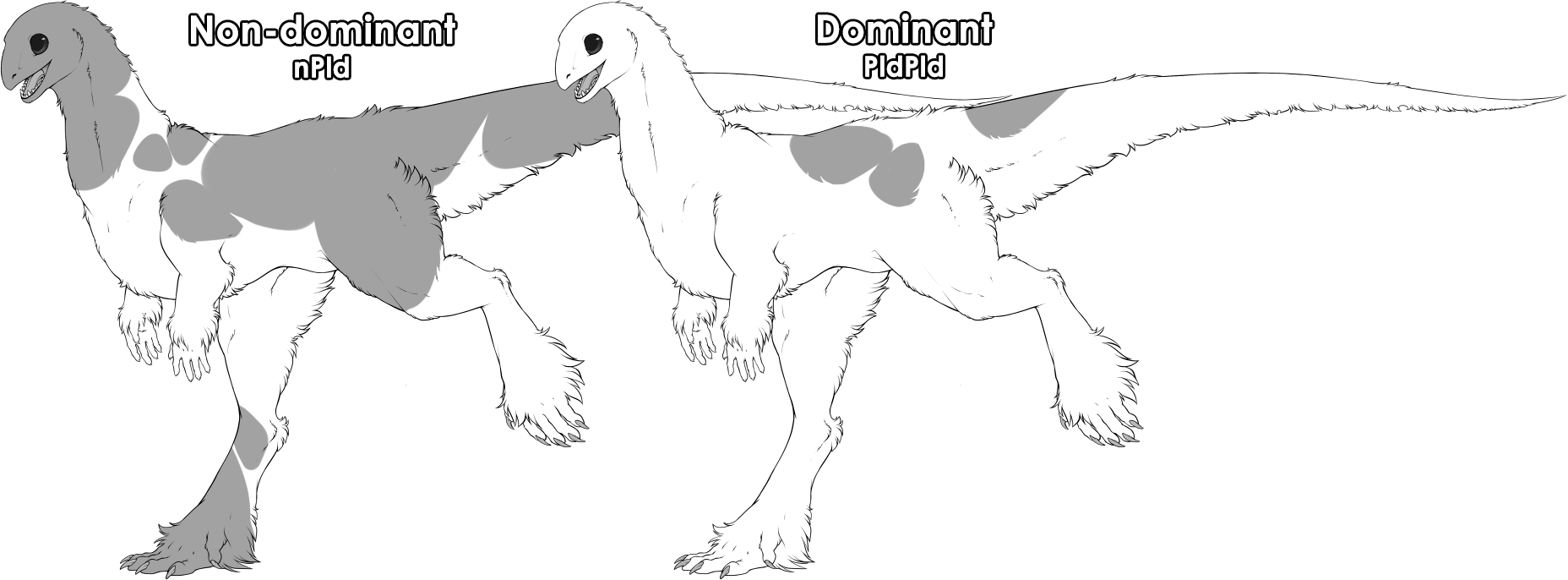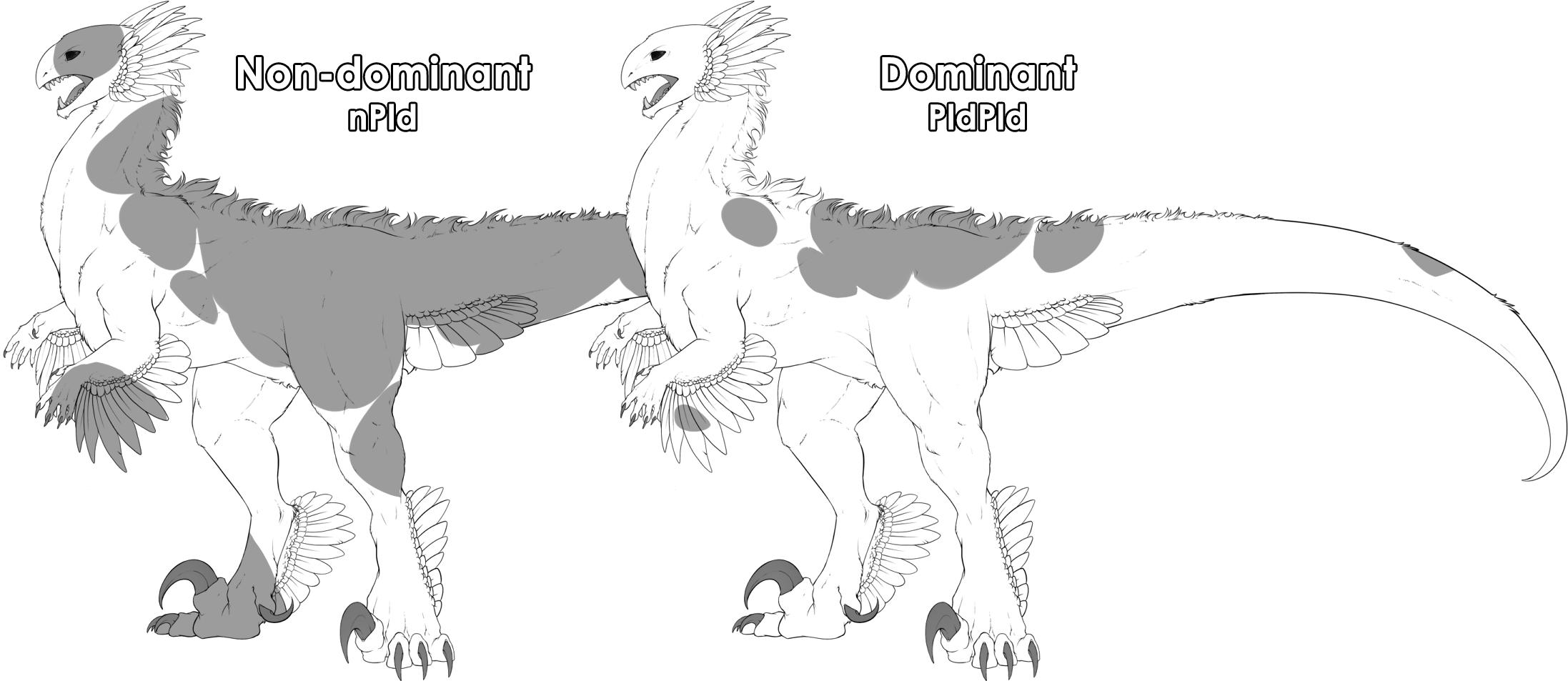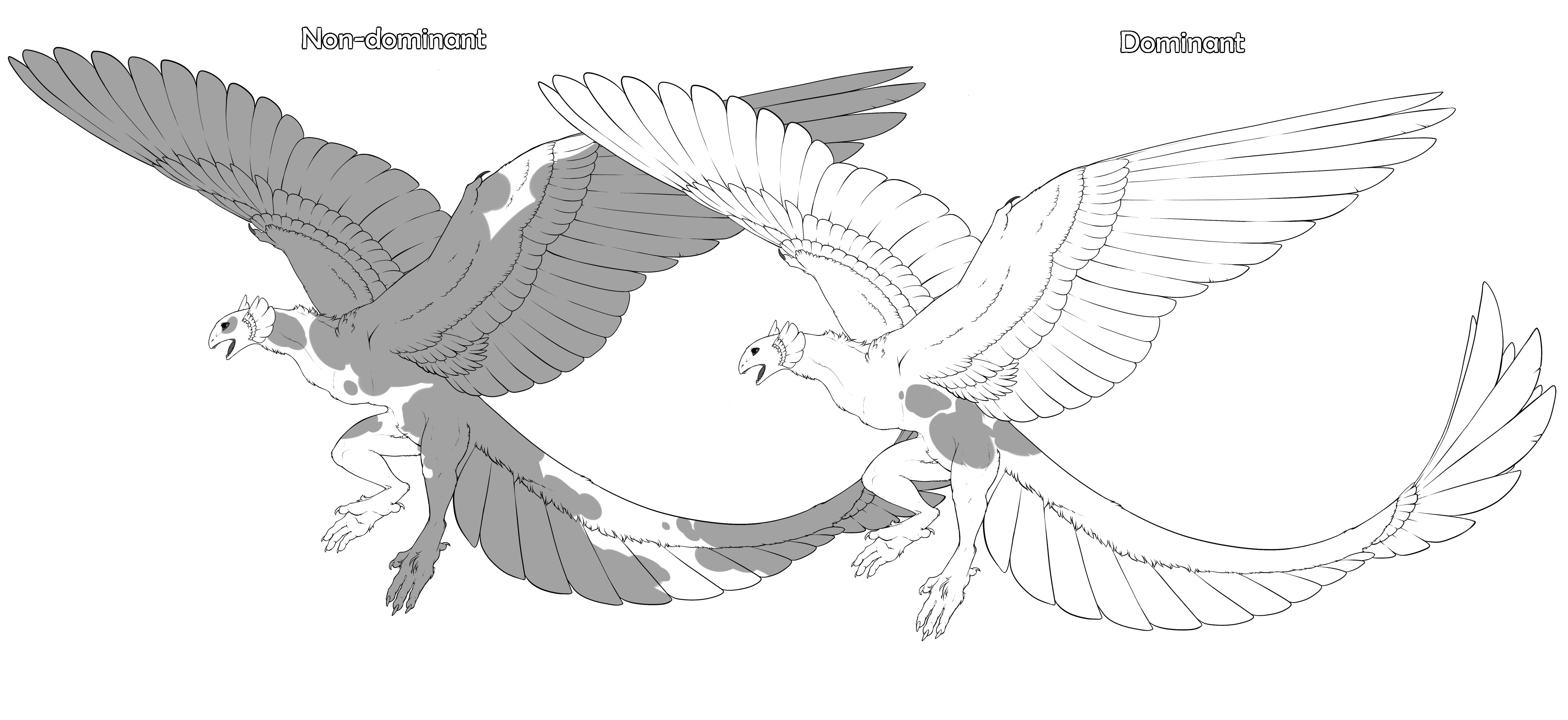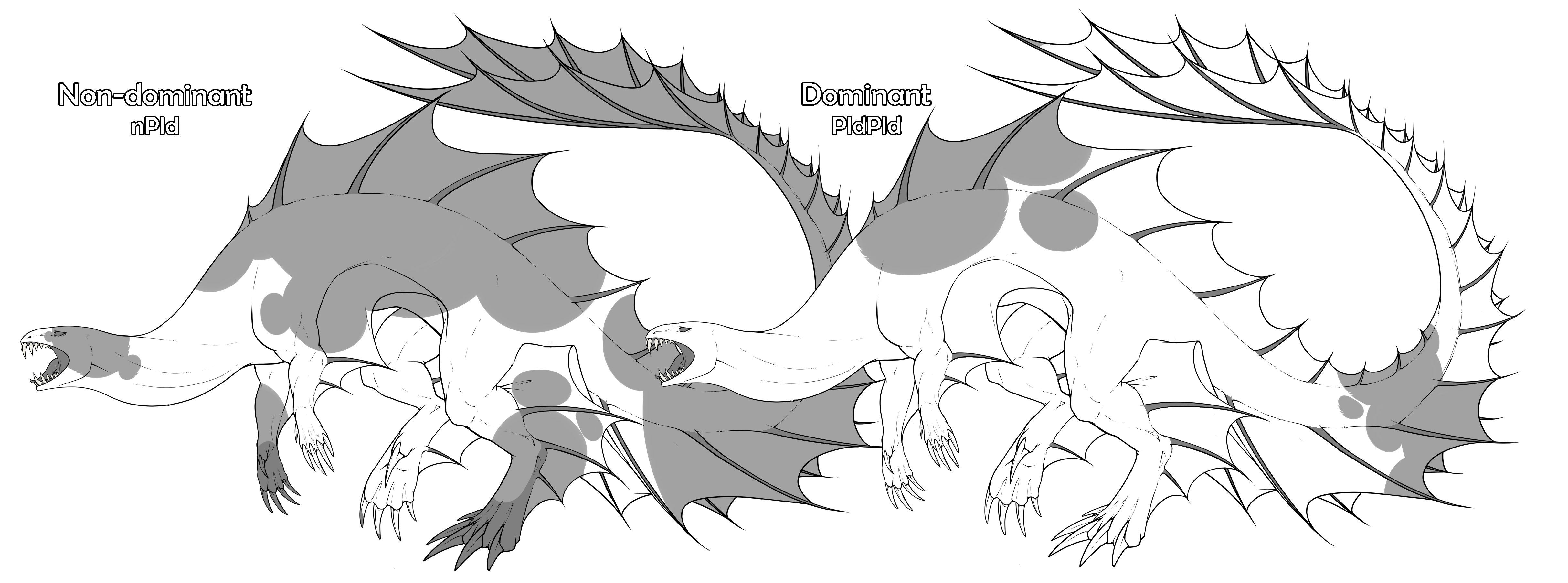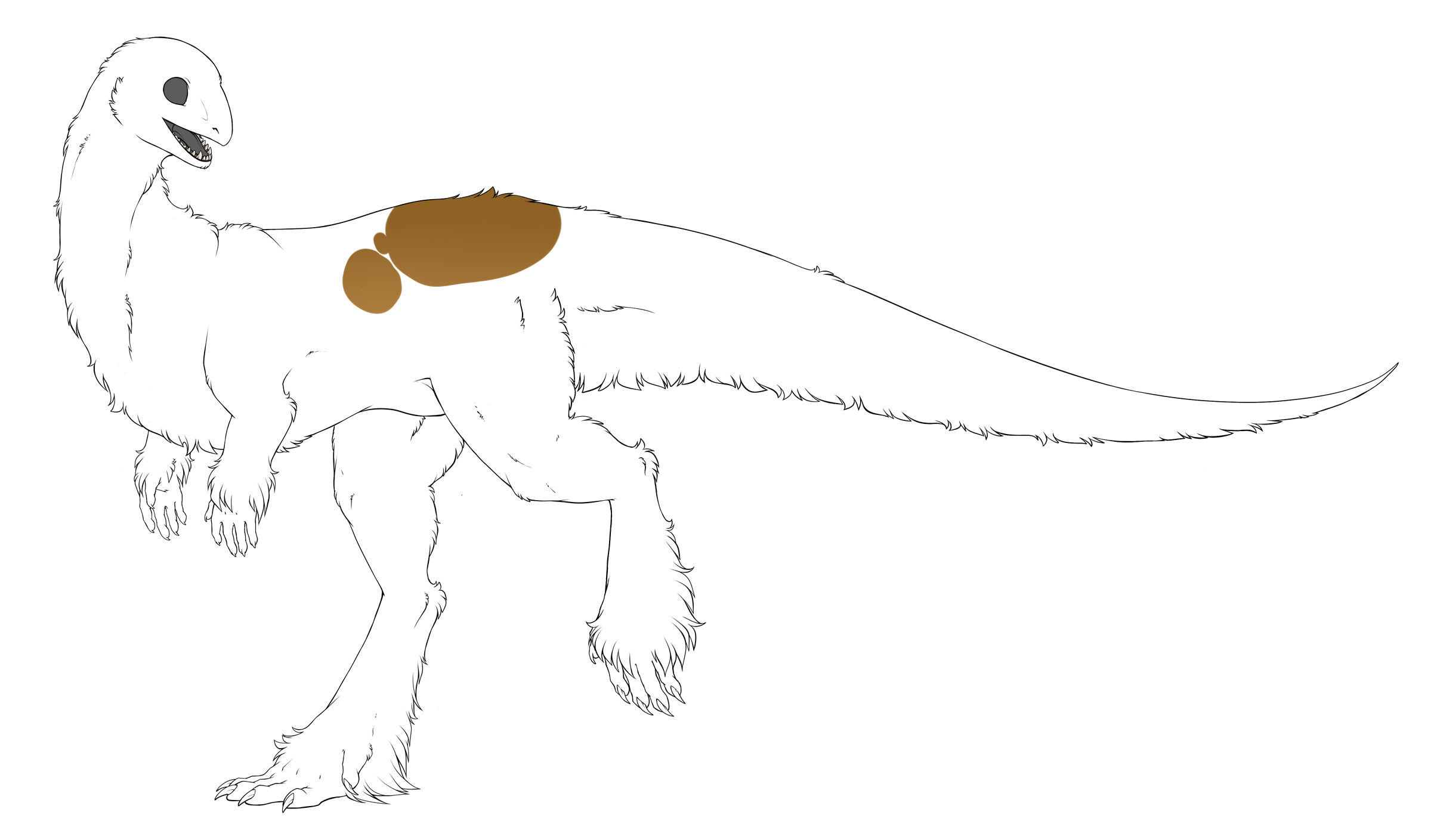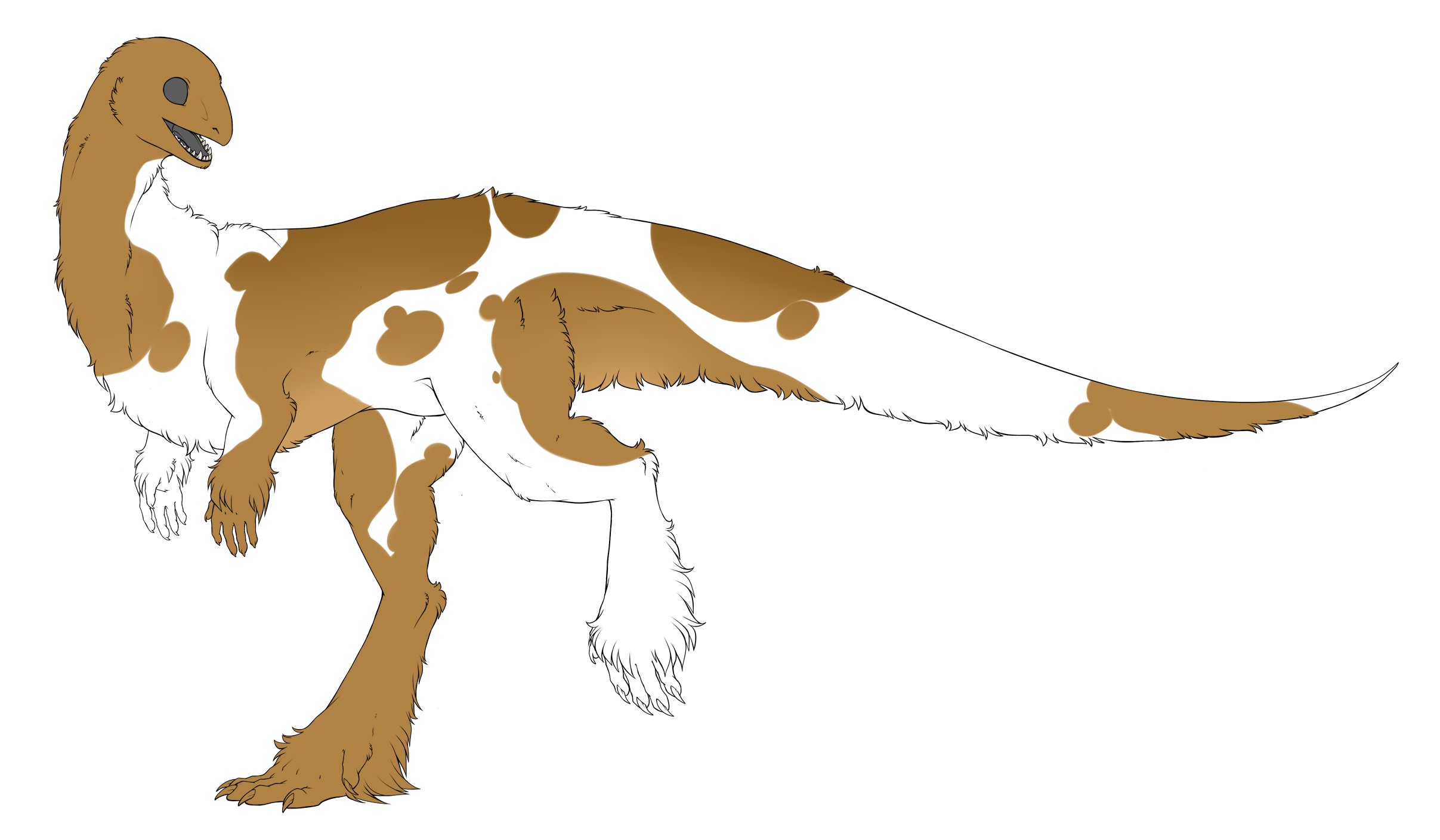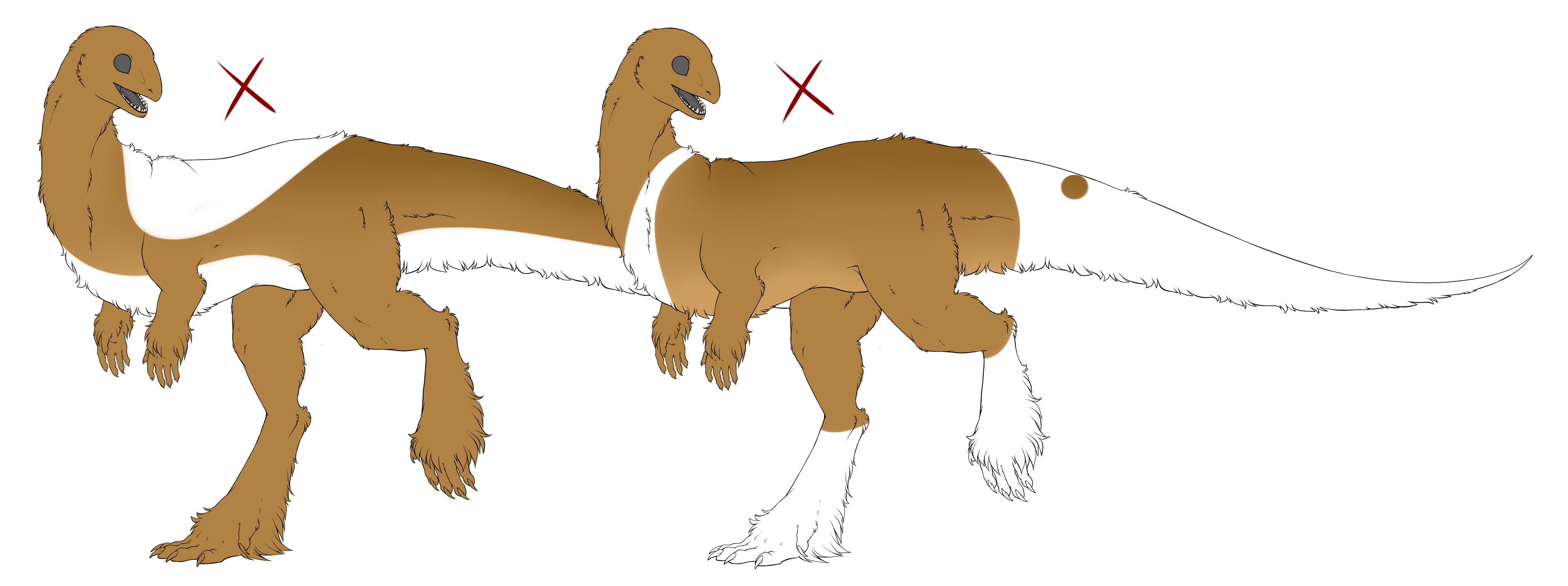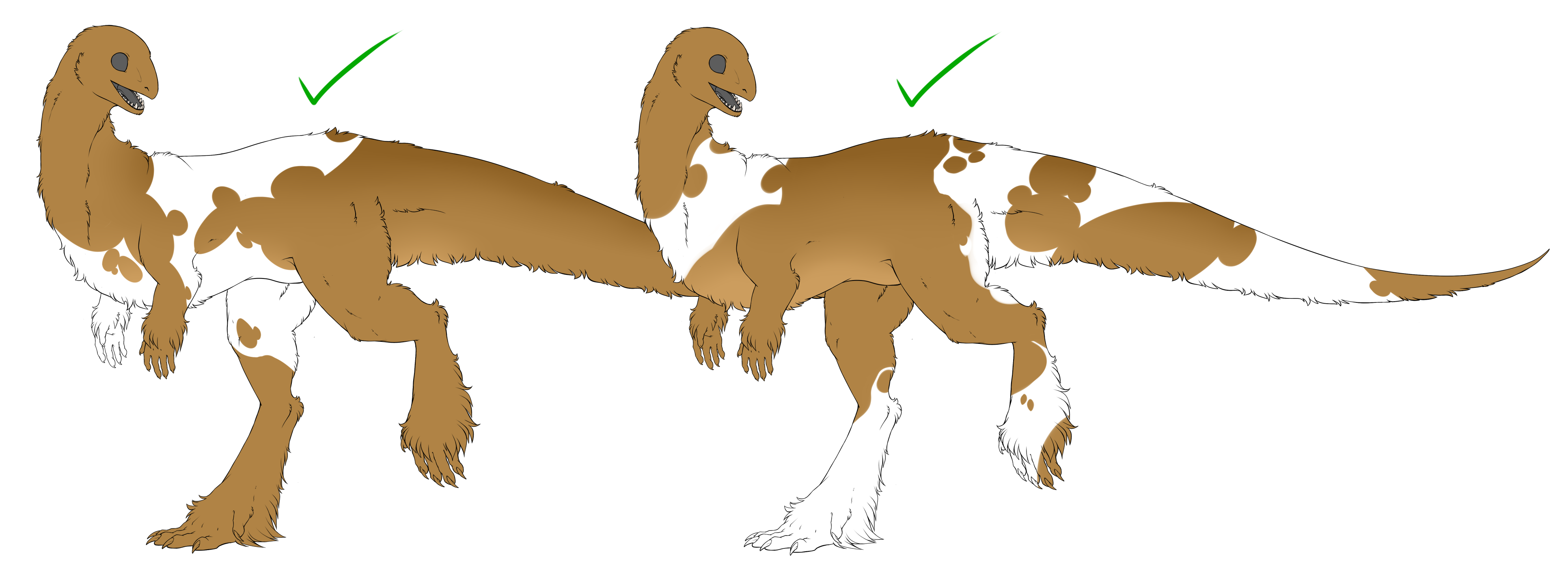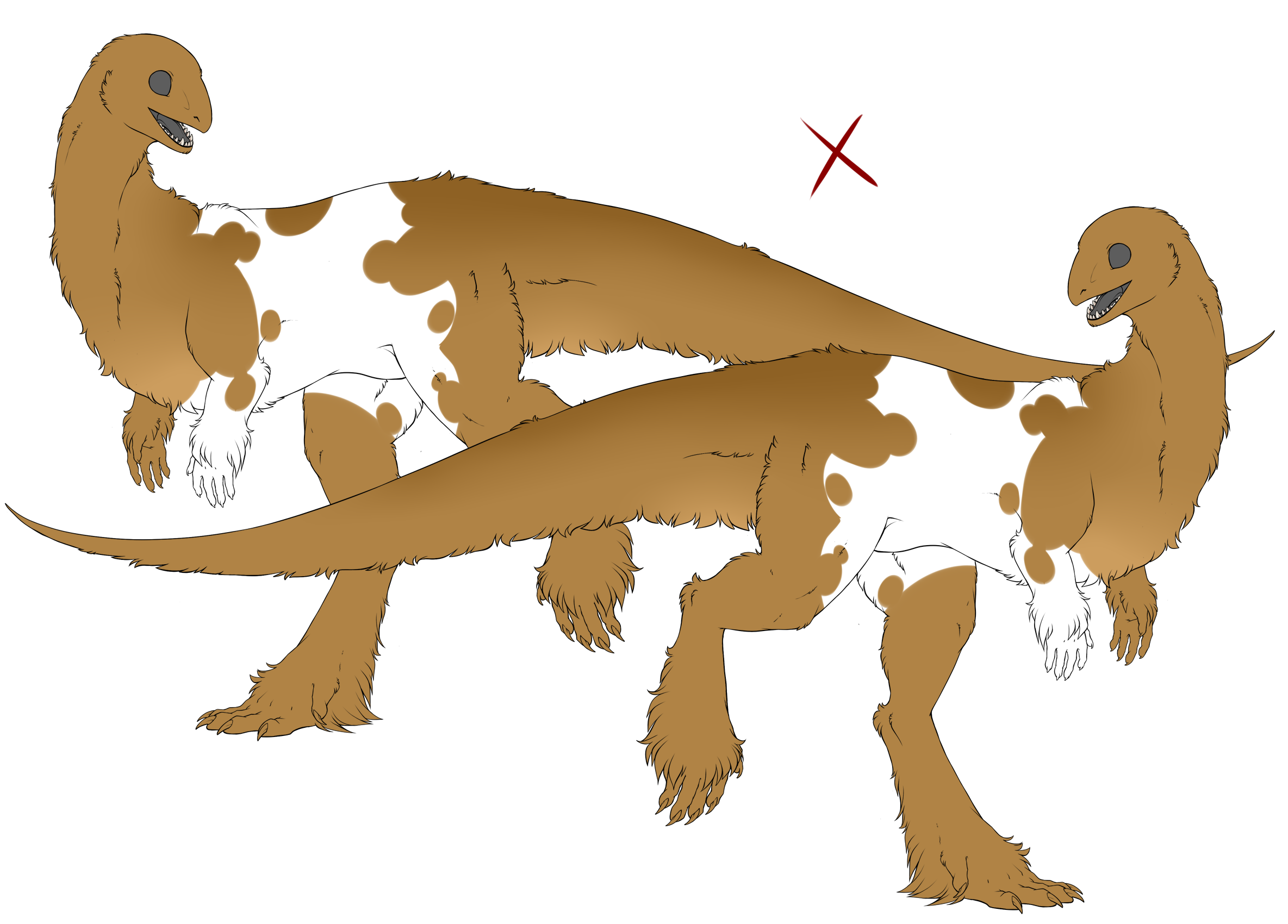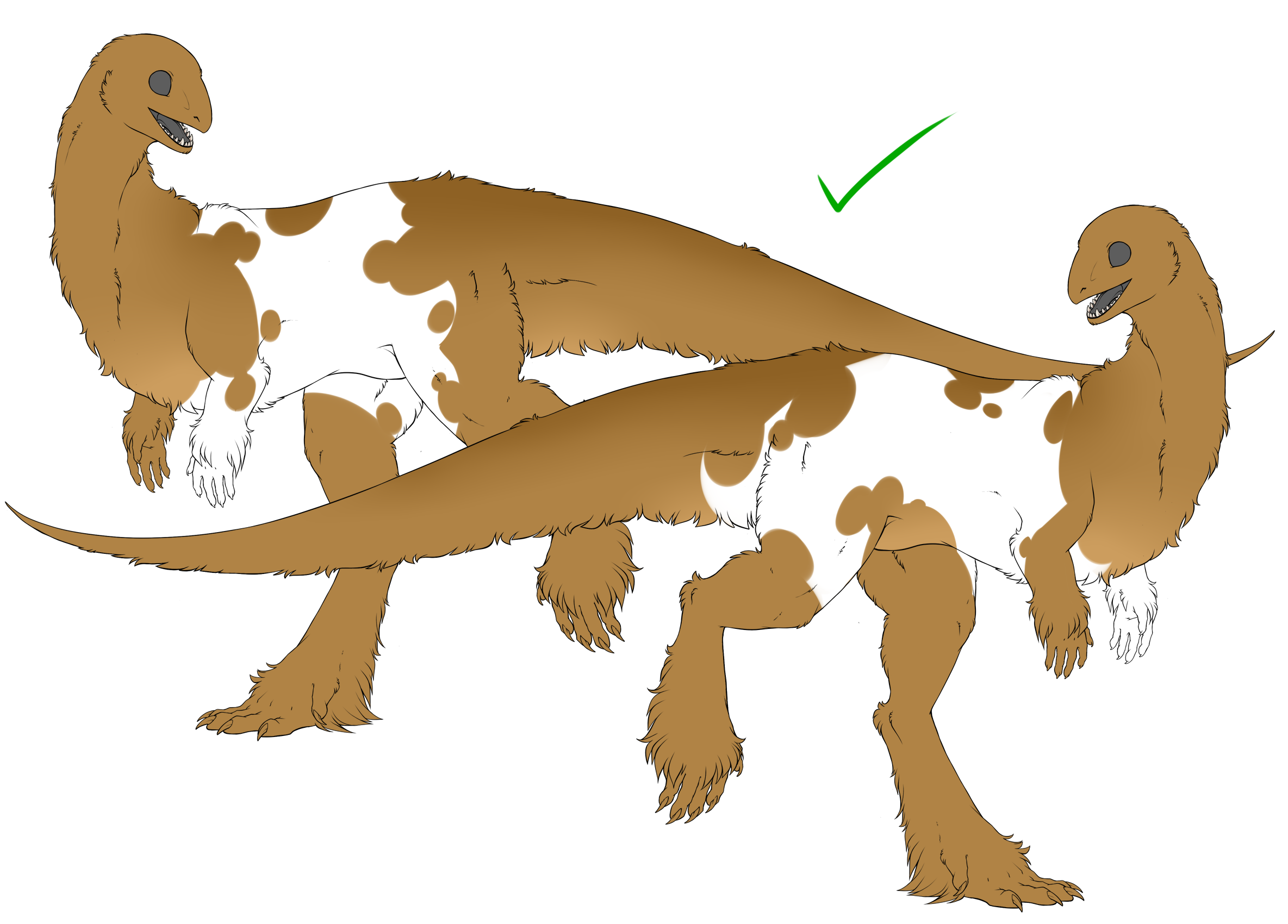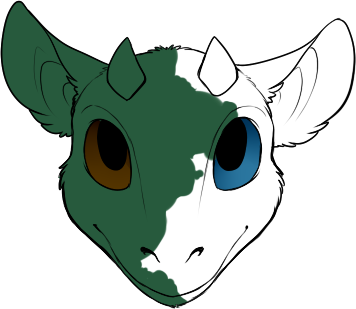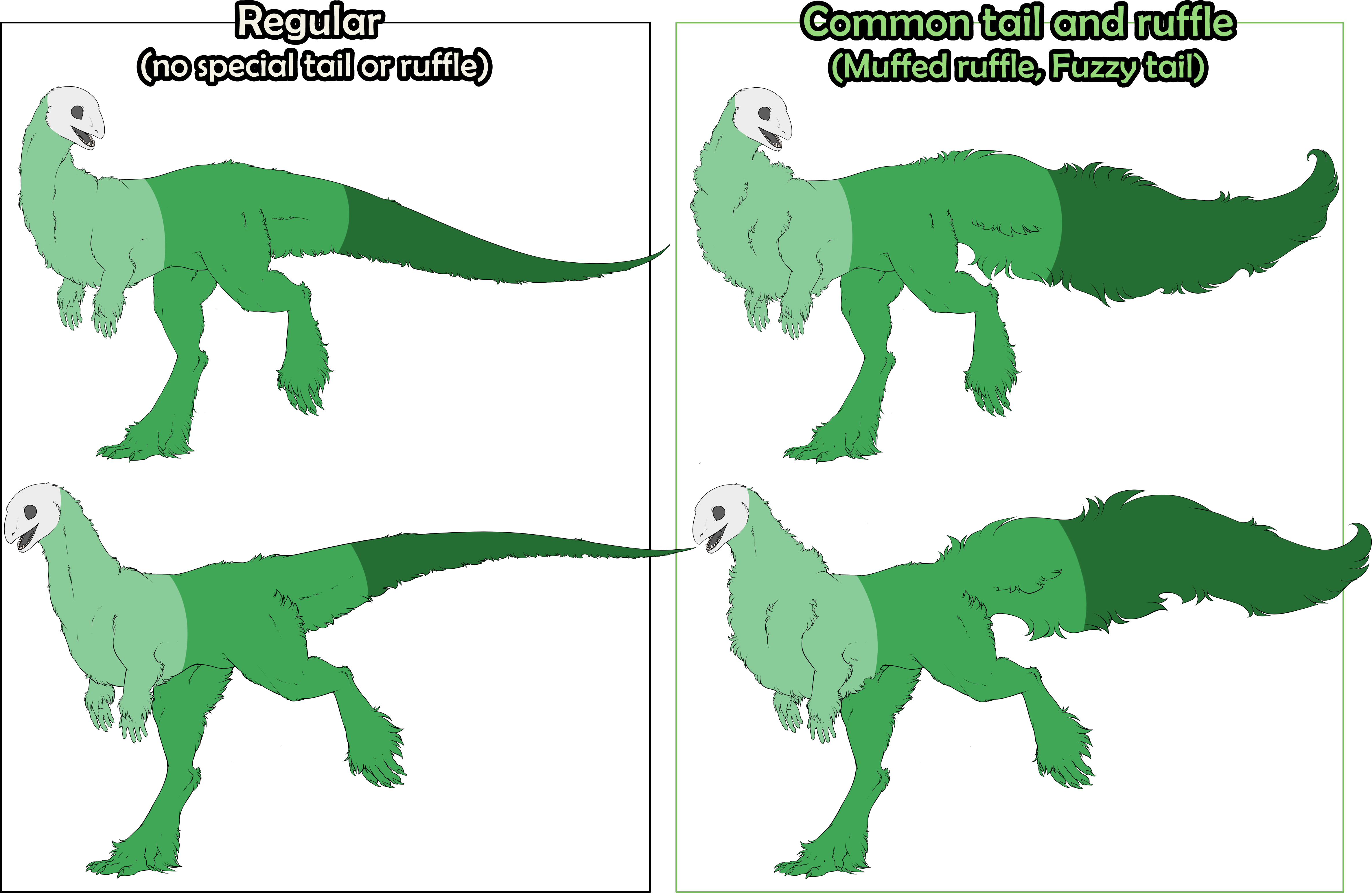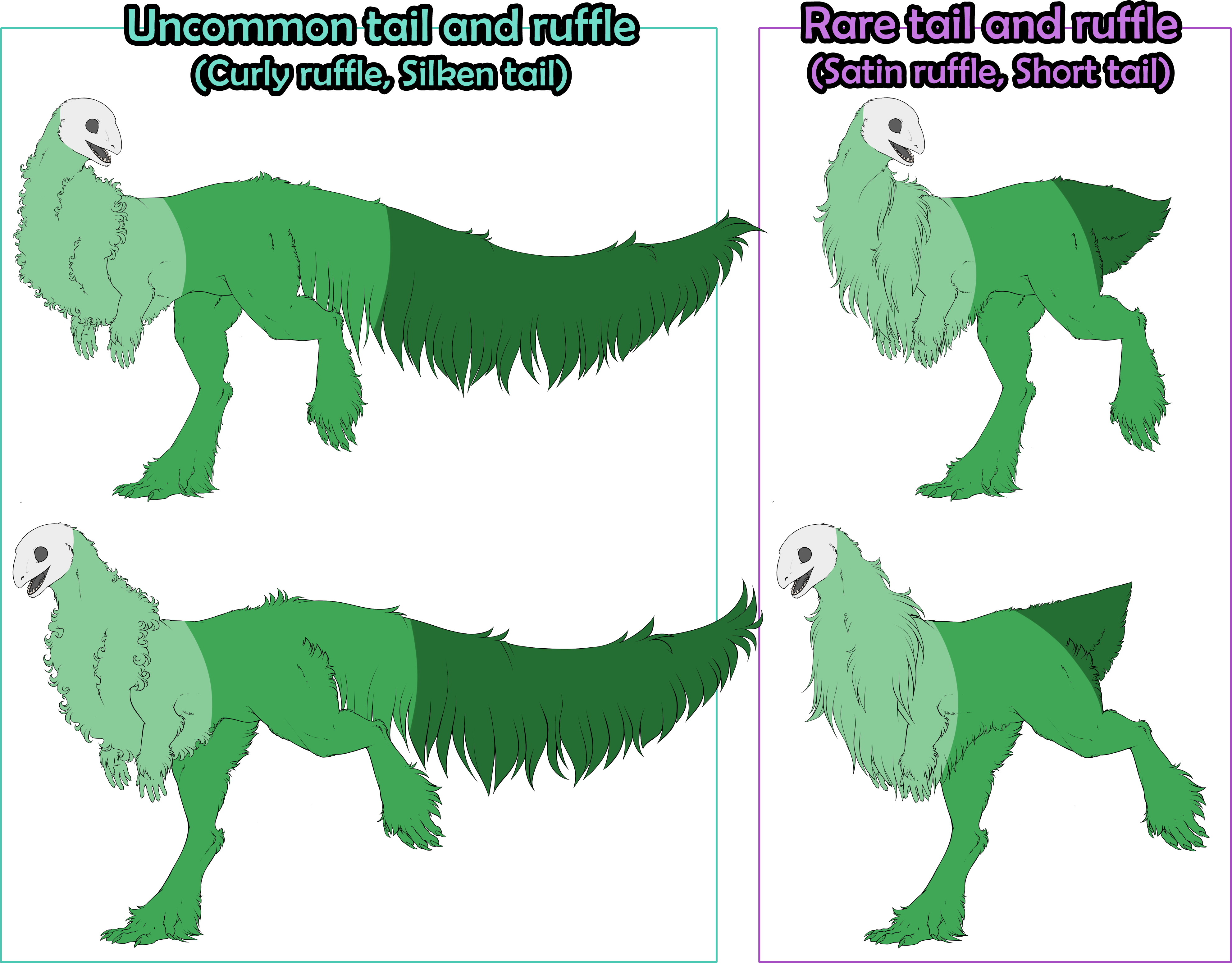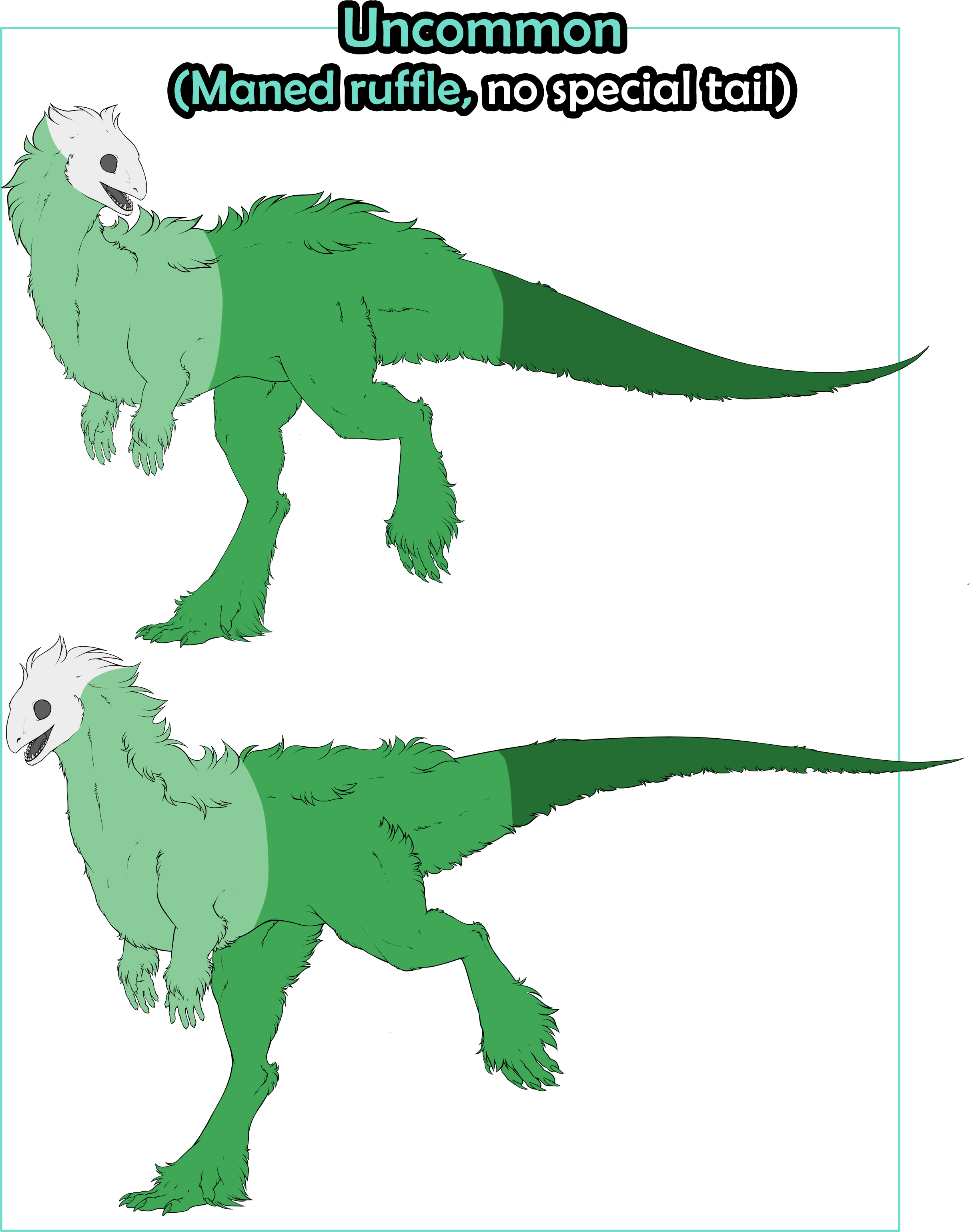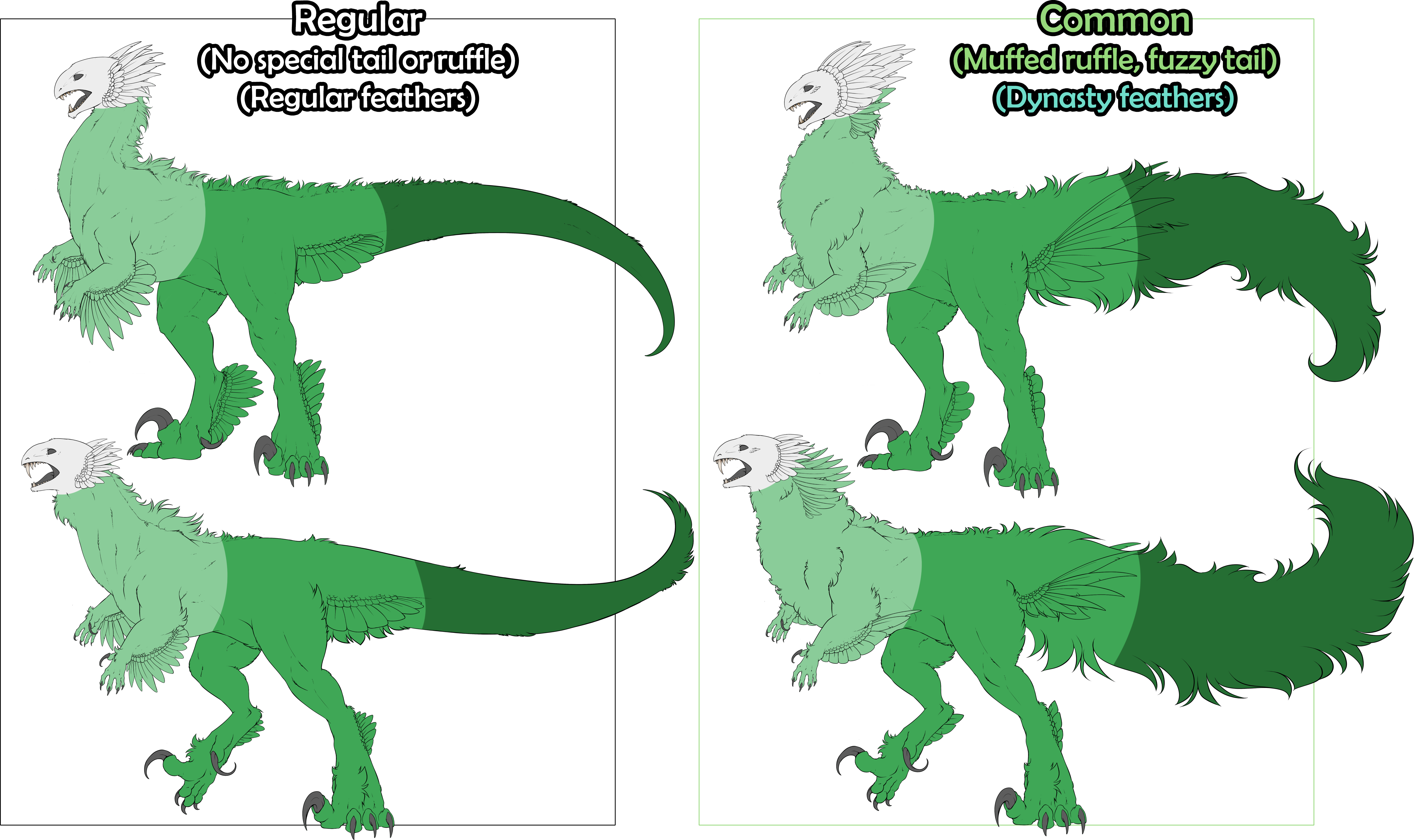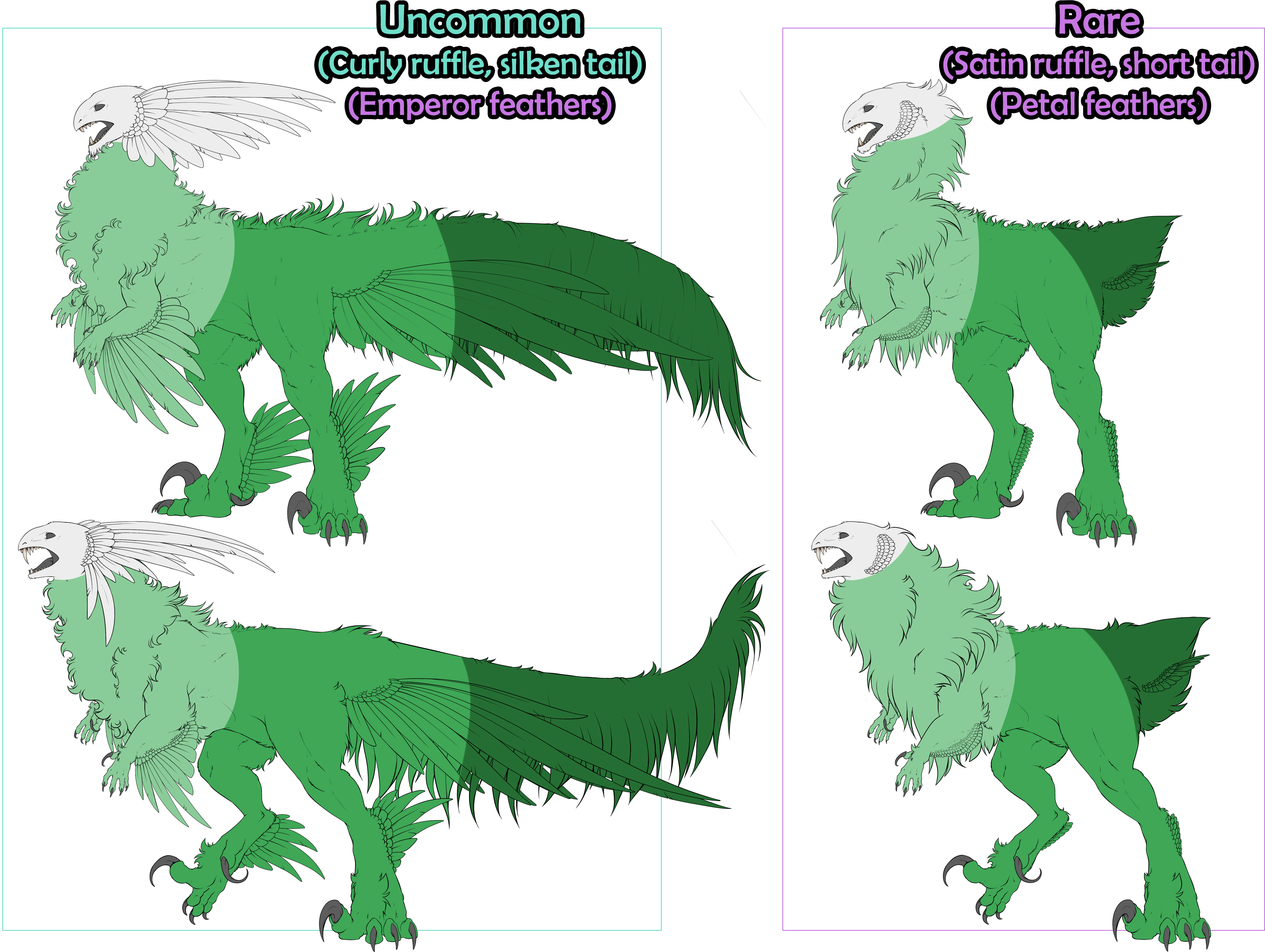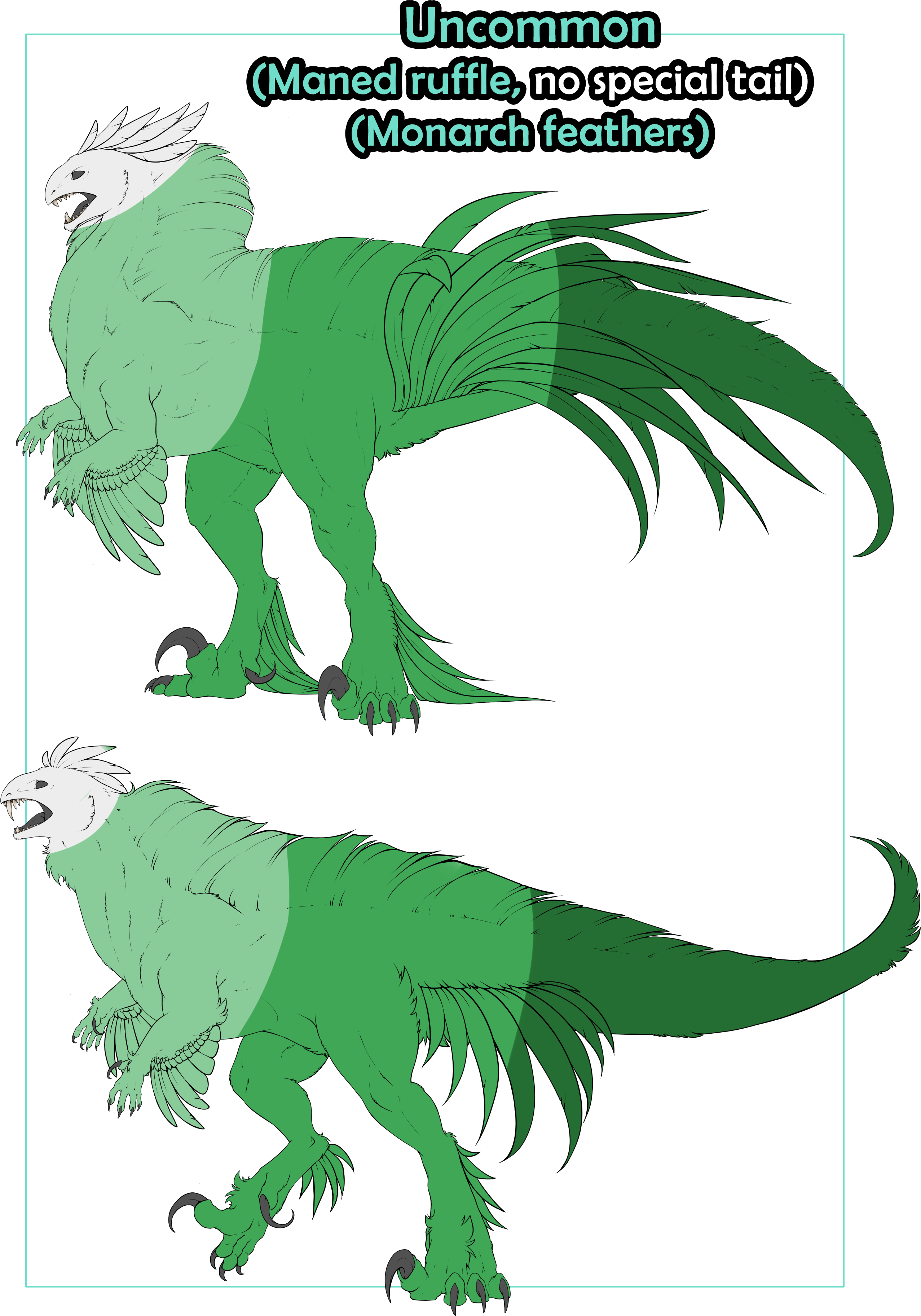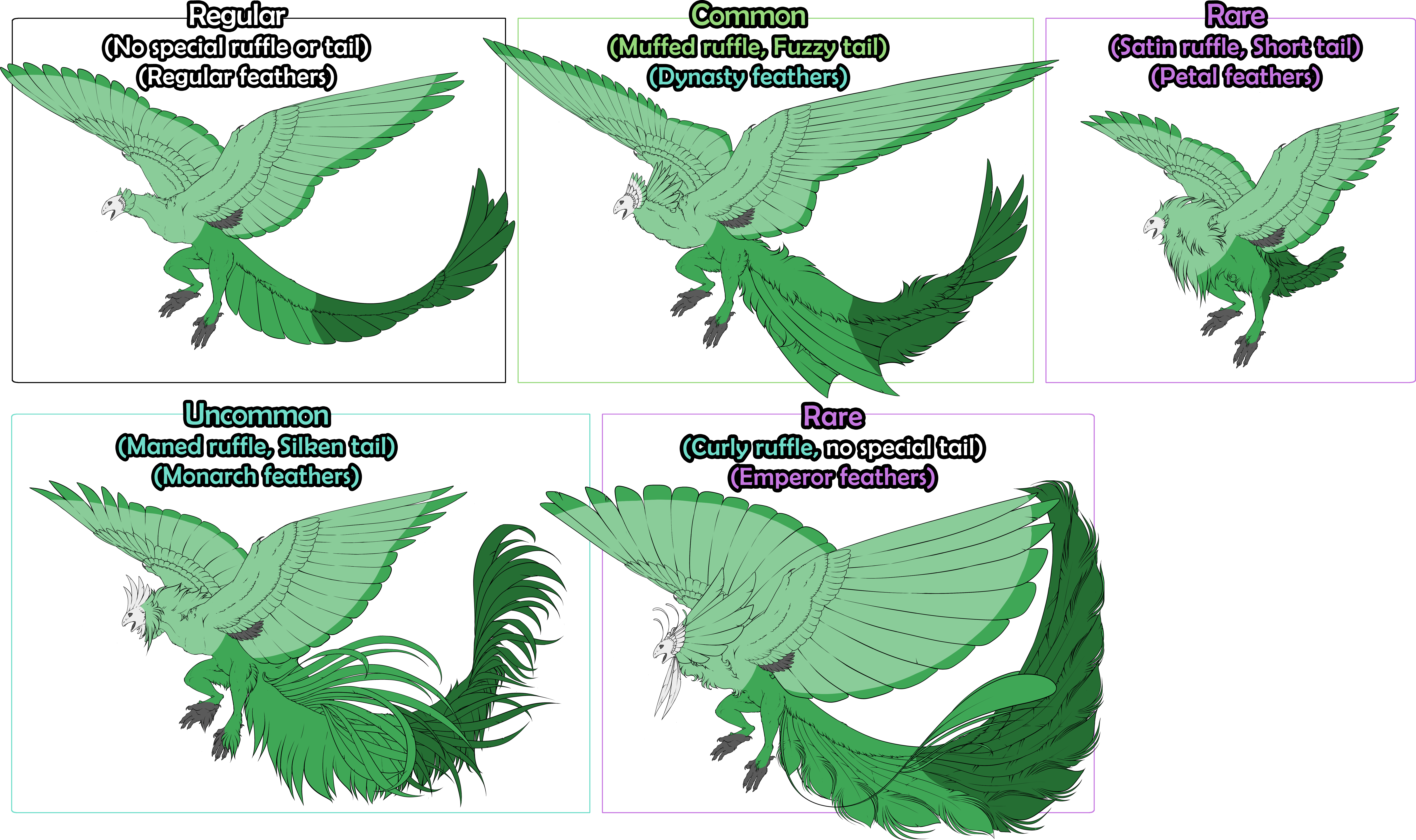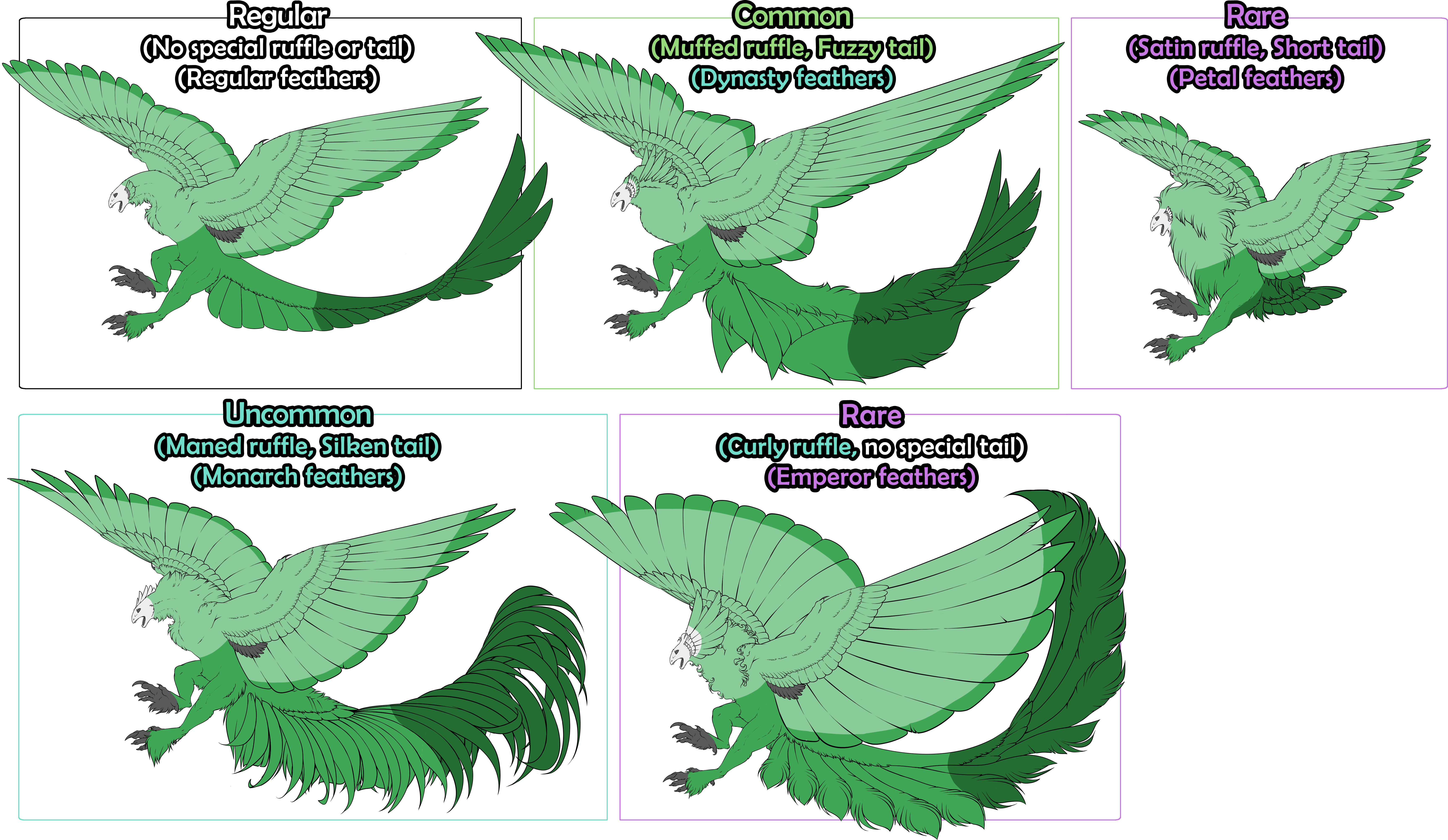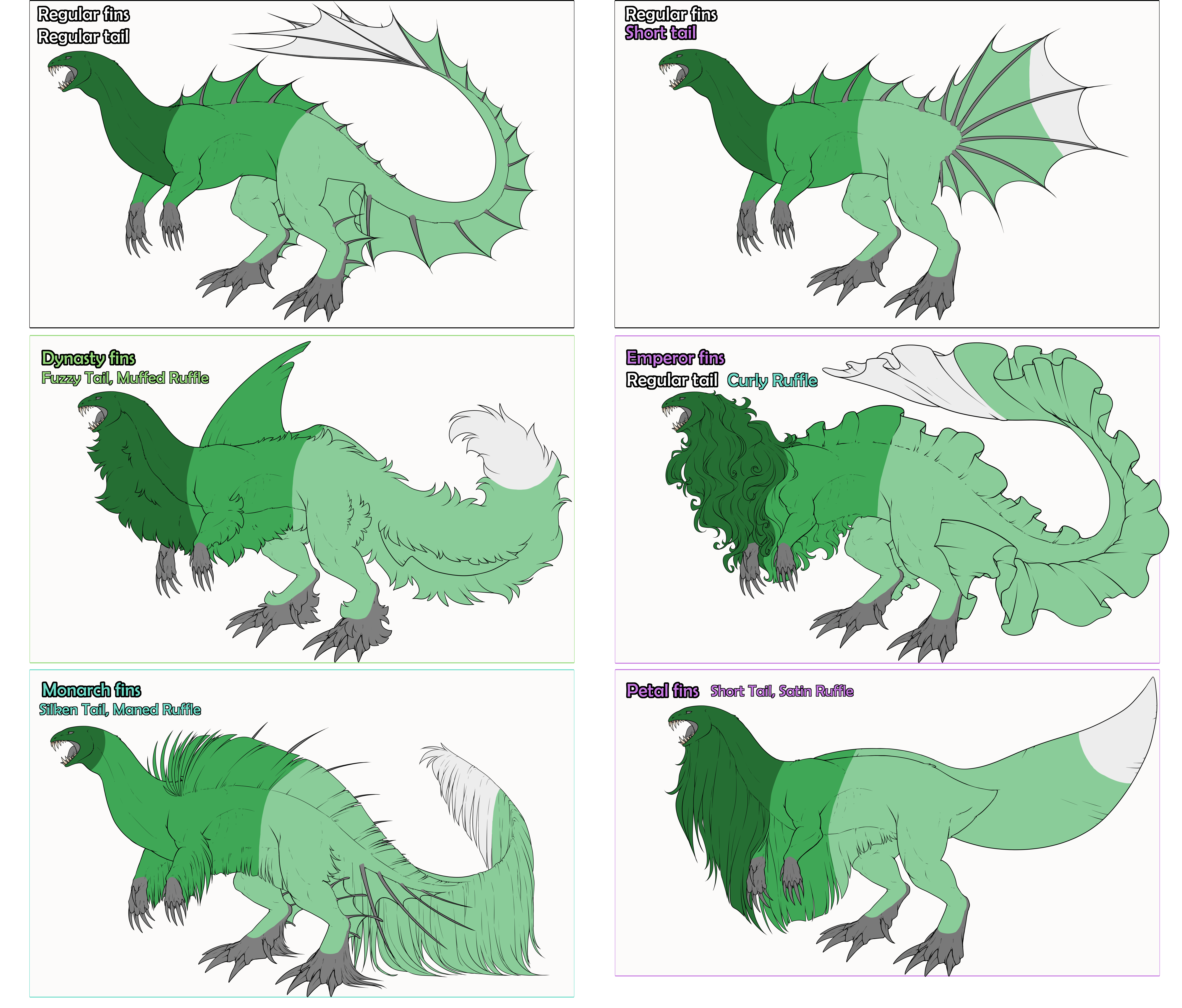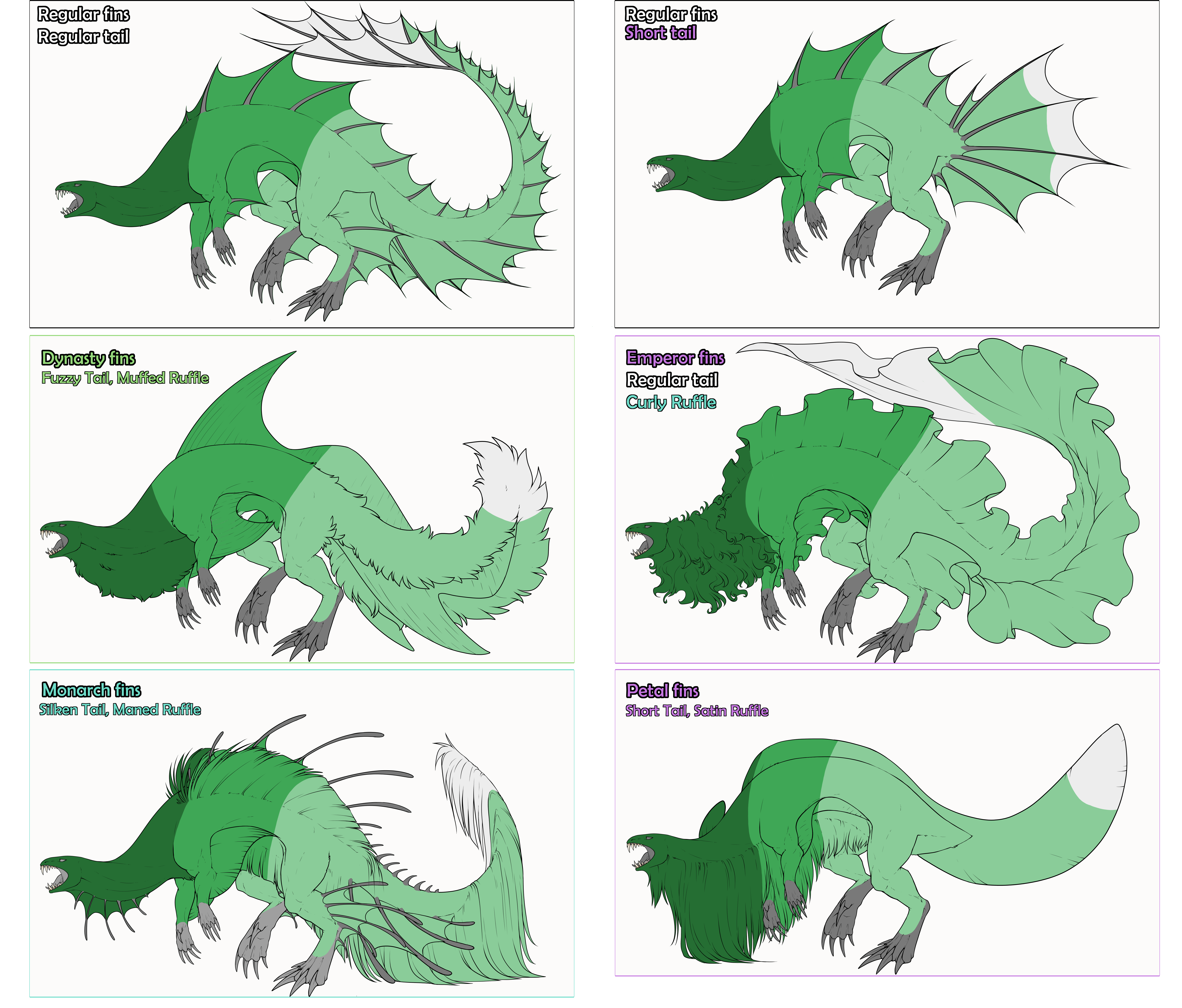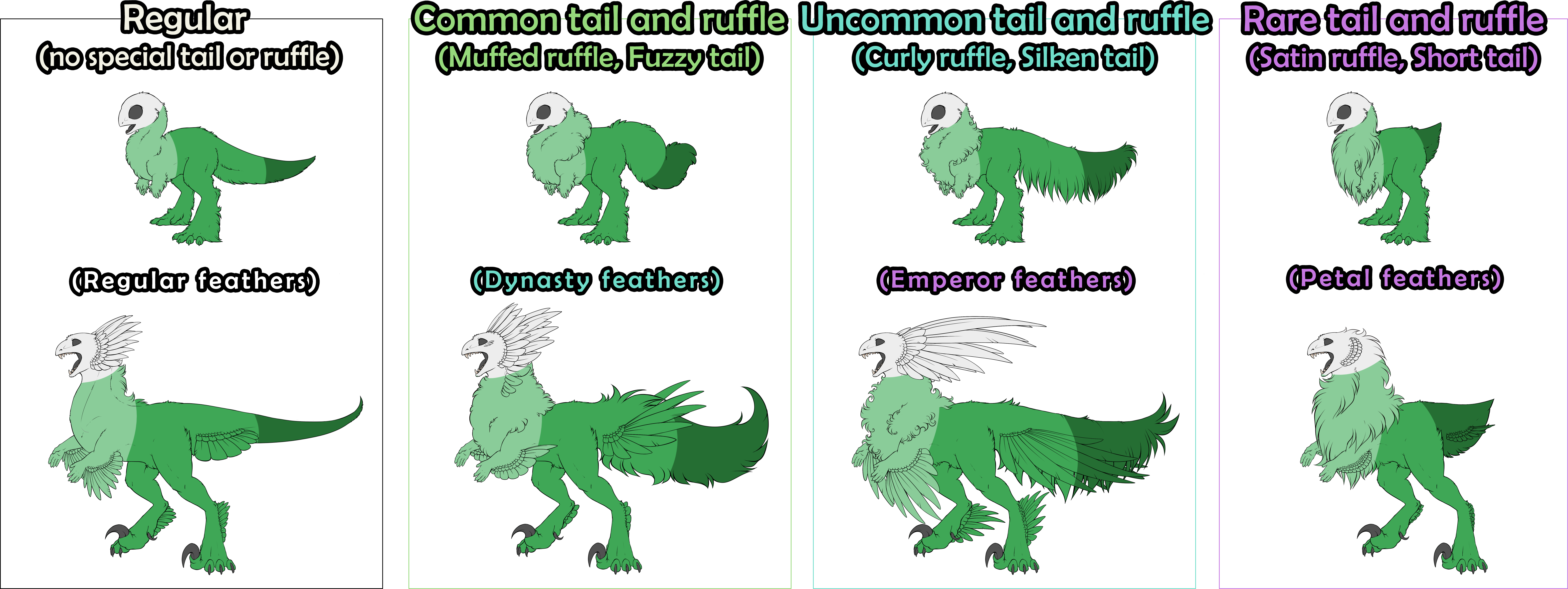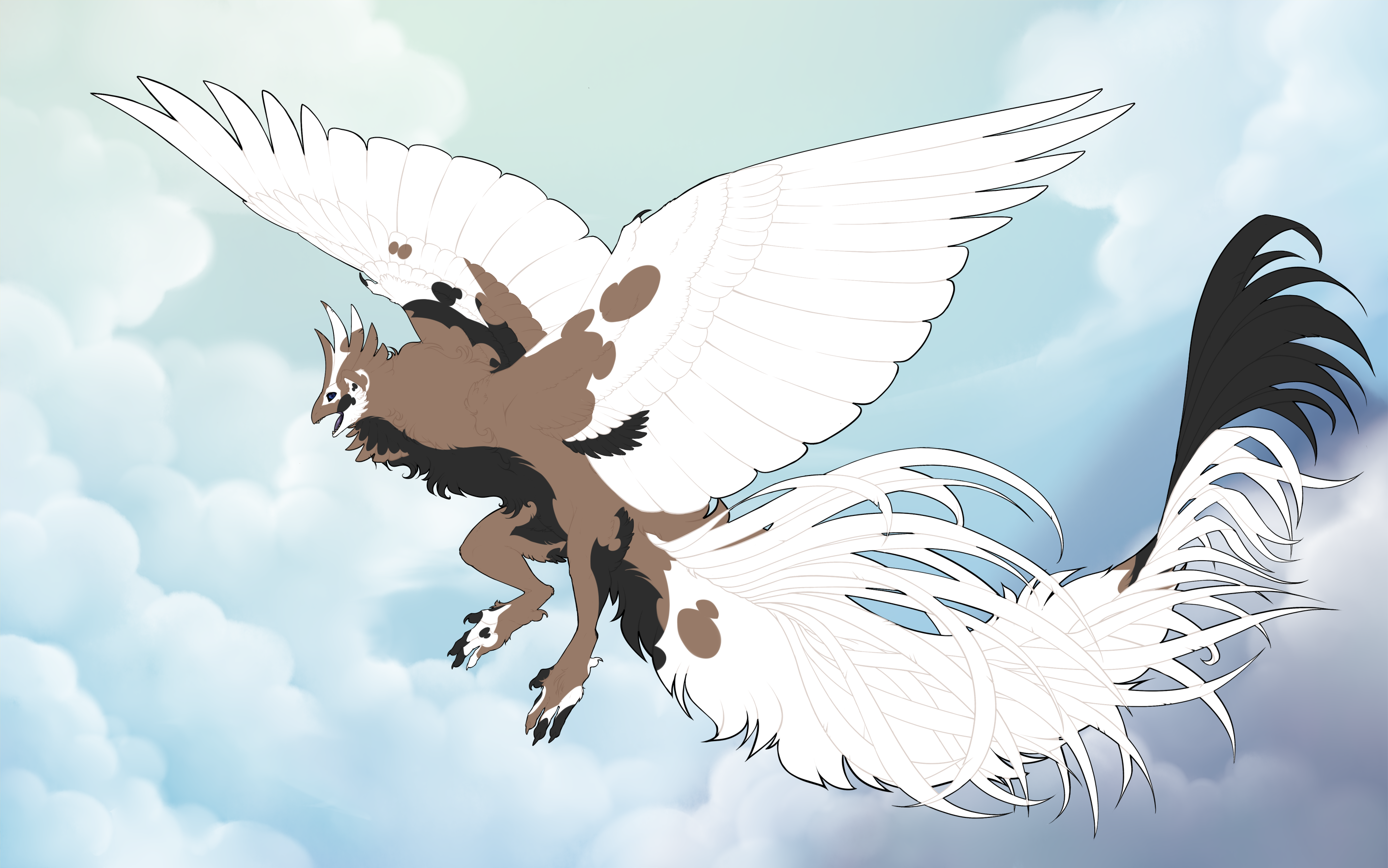Edge allowances
 Hard
Hard Textured
TexturedSymmetry allowances
 Must be asymmetrical
Must be asymmetricalColor Allowances:
 Must be white
Must be white
A Guide to Piebald
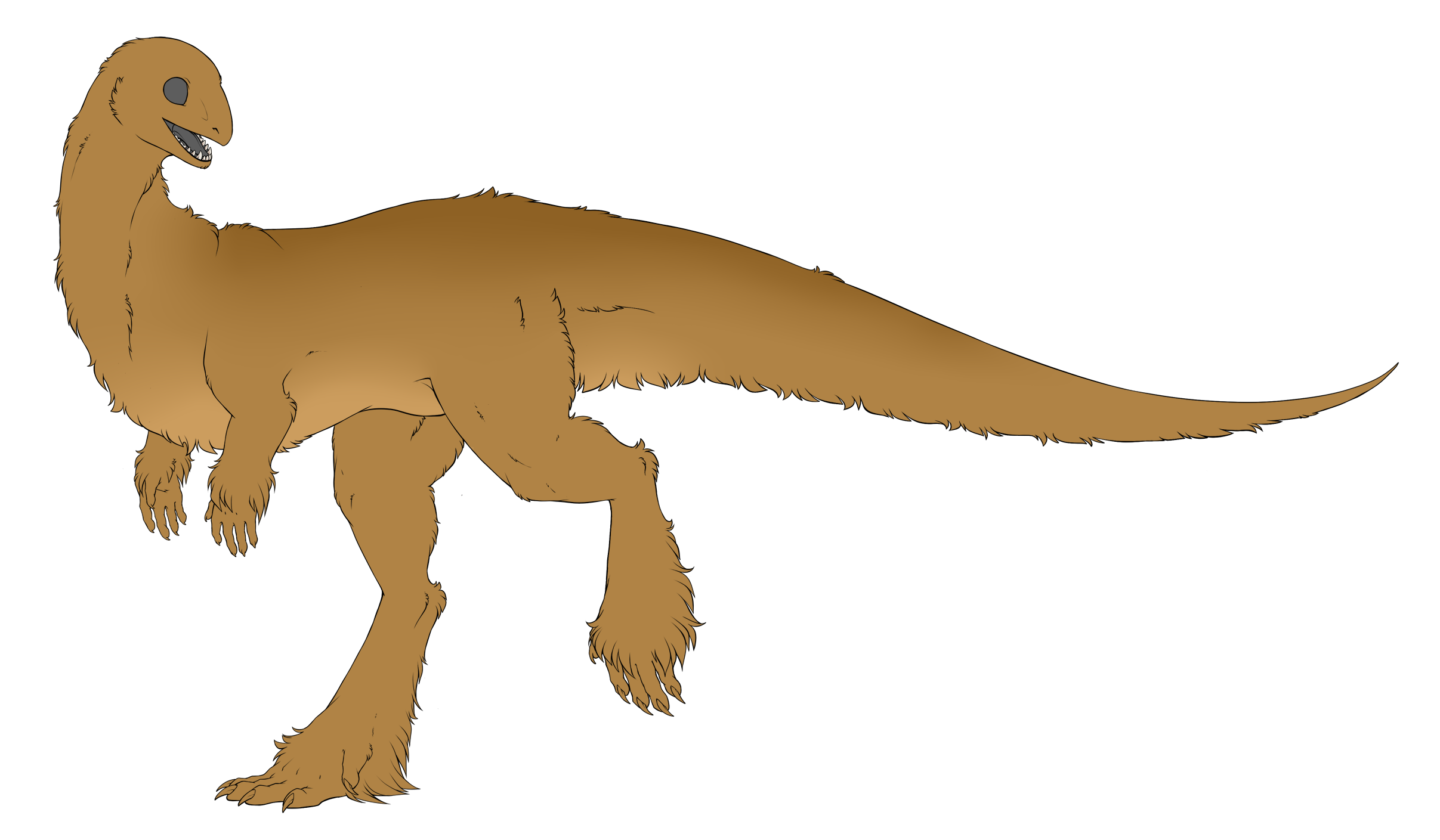
How to Piebald
Step 1
The base design: This example uses an Amber kuku with Sable and Pangare, but your kukuri may look vastly different!
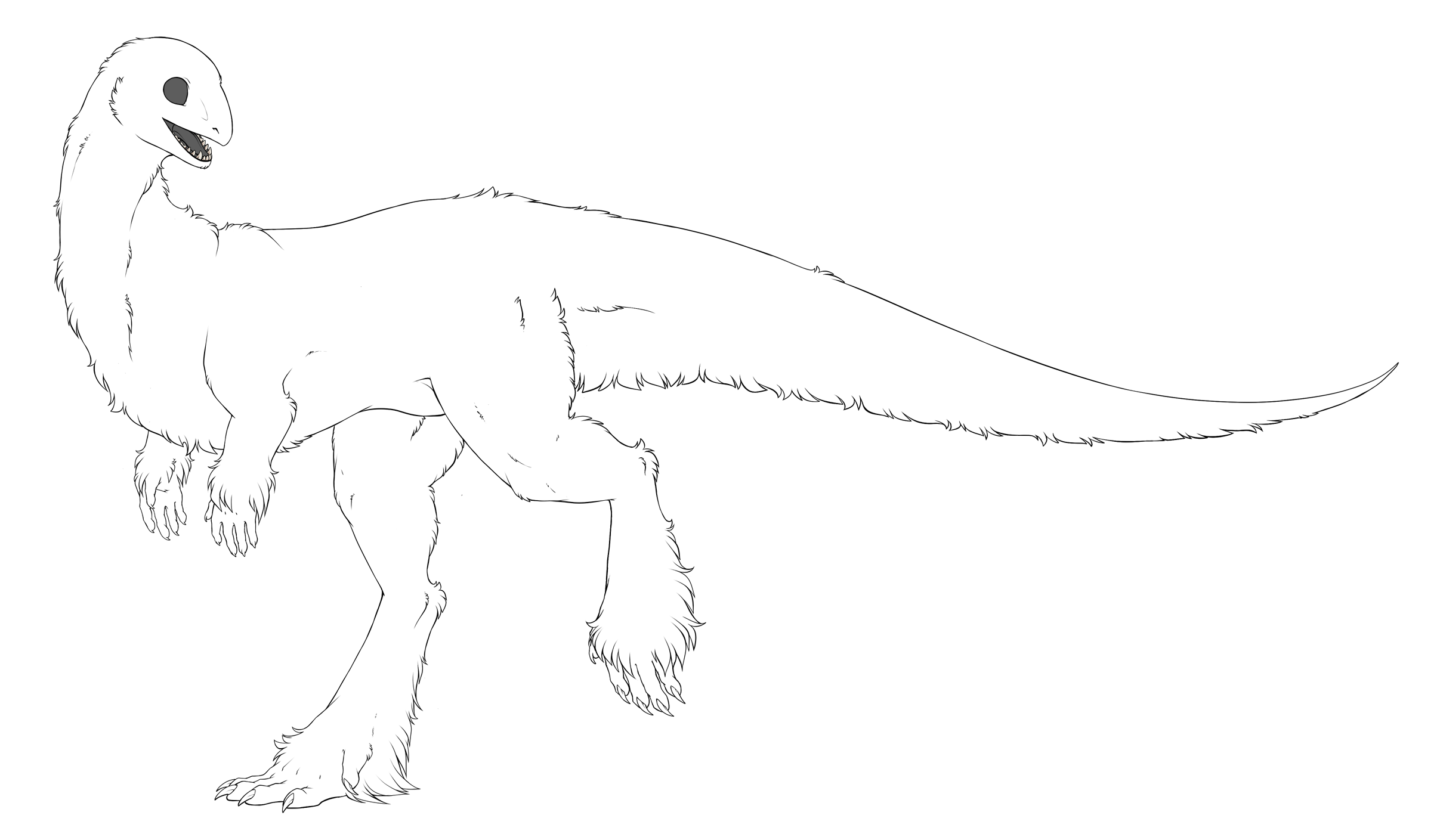
How to Piebald
Step 2
Create a new layer and fill it in with white. Be sure this is its own layer!
Dominant Piebald
When Piebald is dominant, it can cover far more of the kukuri's body... up to 90% of it! Here are some examples of
what that could look like.
Piebald shaping
Piebald can be many different shapes and forms. It may have textured or hard edges allowing for a wide range of possibilites!
Below are some possible examples you can draw inspiration from!

Piebald and other Markings
Piebald can't mimic other markings. Mimicing things such as Blanket or Collar will result in a trip to corrections,
so be sure to not mimic any of these! The examples to the side are what to avoid.
However this doesn't mean Piebald can't appear in those same zones. They can still appear where Underbelly would be,
or still wrap around the neck. As long as it still looks like Piebald rather than those markings!
What to Avoid
Piebald should look as though its been erased from the body. Any "painted on" or deliberate forms are not allowed!
Stringy, swirly, too regular shaped and any mimicing of markings is not permitted. Faces, hearts, or other unnatural
shapes like stars will be denied as well! Below are examples of what not to do!

Piebald asymmetry
Piebald must be asymmetrical. This means the different sides of the kukuri needs to be largely different from
each other and the Piebald's edges should not match up perfectly if both sides are layered on top of each other!
The easiest way to produce a good asymmetrical look is to copy the original Piebald layer, and edit it to have more or less
coverage for the other side!
Textures
Piebald can have textured and hard edges! It can also have mild fur shaping (row 1). However it can not have soft or blended
edges, nor can the fur texturing be too extreme (row 2)!
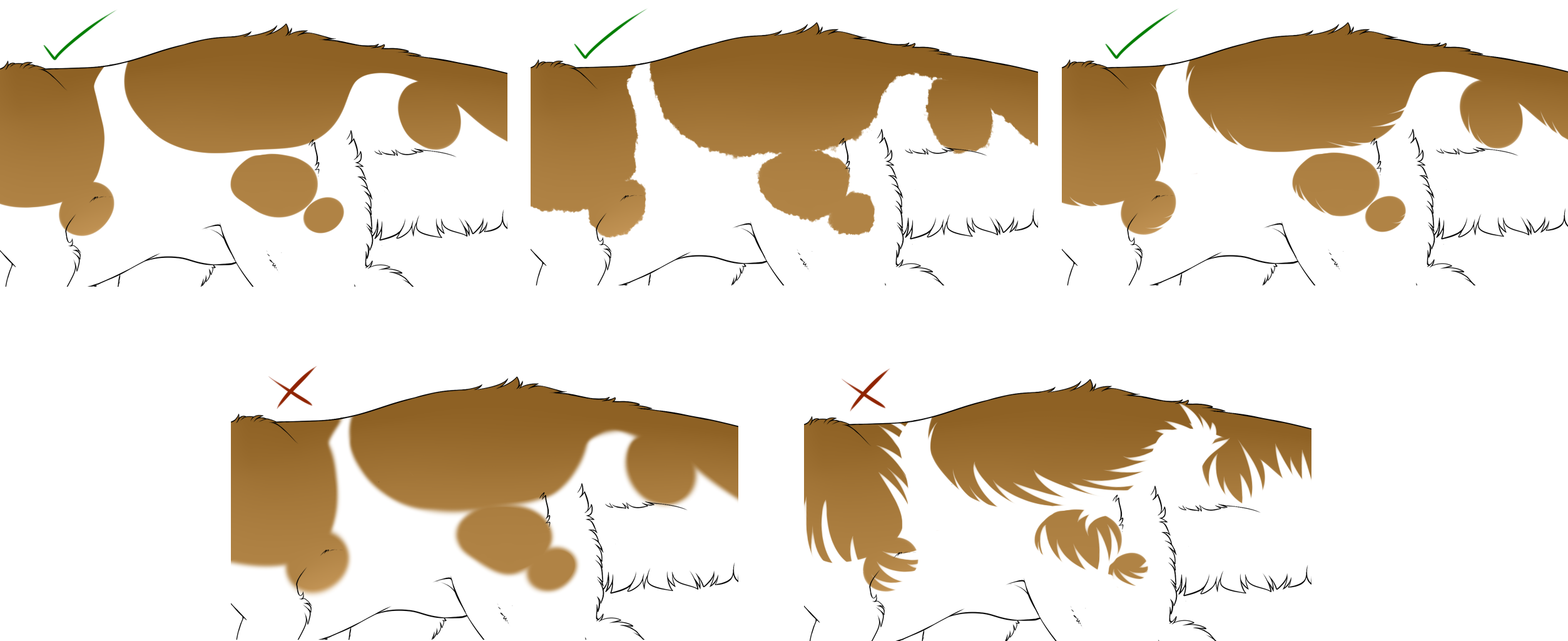
PIEBALD AND HETEROCHROMIA
Piebald can create heterochromic eyes almost the same way as the mutation does, but it is not inheritable to any offspring.
This doesn't act like real life piebald or pinto, it does not change the eyes blue. It takes the colors from the parents only,
unless the parents are albinos (in which case you can use grandparent's colors).
Heterochromia can only appear when the white area covers one of the eyes, and not the other. Partial heterochromia is not allowed for a Piebald.
Also unlike Heterochromia mutation, Piebald can not make the eyes have different colored scleras.
If a kukuri has both Piebald and heterochromia, one eye may be affected by piebald (one color) and the other may be
affected by heterochromia (two colors), for 3 total eye colors. There may not be three colors in one or both
eyes!
PIEBALD AND MOUTHS
Where Piebald overlaps the mouth, it can impact the coloration, creating a two toned look.
The color of the affected area must be either a light red/pink or a color taken from the white slider. No other colors are permitted.
The piebald color in the mouth cannot be darker than the tongue color
The piebald cannot create holes or spots of color on the tongue. Additionally if the tongue is spotted, those spots cannot be shown in the affected area!
Piebald Ranges
The minimum percentage of a kukuri's body Piebald should cover
The maximum percentage of a kukuri's body recessive Piebald can cover
The maximum percentage of a kukuri's body dominant Piebald can cover
The minimum percentage of a kukuri's body Piebald should cover
The maximum percentage of a kukuri's body recessive Piebald can cover
The maximum percentage of a kukuri's body dominant Piebald can cover
The minimum percentage of a kukuri's body Piebald should cover
The maximum percentage of a kukuri's body recessive Piebald can cover
The maximum percentage of a kukuri's body dominant Piebald can cover
The minimum percentage of a kukuri's body Piebald should cover
The maximum percentage of a kukuri's body recessive Piebald can cover
The maximum percentage of a kukuri's body dominant Piebald can cover
The minimum percentage of a kukuri's body Piebald should cover
The maximum percentage of a kukuri's body recessive Piebald can cover
The maximum percentage of a kukuri's body dominant Piebald can cover
